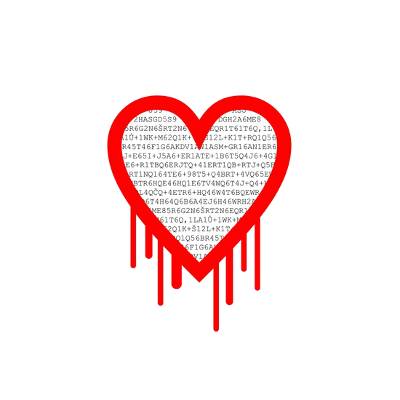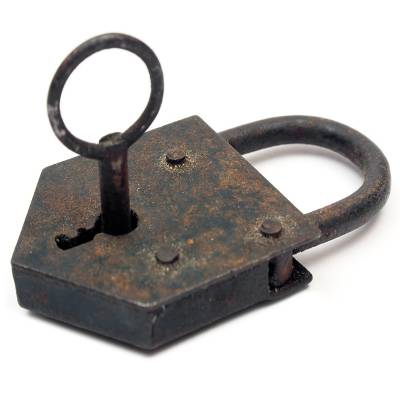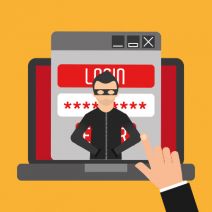SMART Blog
 Businesses all over the world are starting to implement two-factor authentication. That's because the value of passwords is expected to depreciate as hackers find ways to punch holes in even the most comprehensive security solution. In response, users are being forced to find other means to increase their security.
Businesses all over the world are starting to implement two-factor authentication. That's because the value of passwords is expected to depreciate as hackers find ways to punch holes in even the most comprehensive security solution. In response, users are being forced to find other means to increase their security.
 Since you run a business, you know that your business’s network requires a secure firewall to keep threats out. In fact, the firewall is the most basic of security protocol that you should be taking advantage of. Knowing what a firewall protects you from, and what it doesn’t protect you from, is an important first step toward improving your data infrastructure’s security and improving your business’s continuity.
Since you run a business, you know that your business’s network requires a secure firewall to keep threats out. In fact, the firewall is the most basic of security protocol that you should be taking advantage of. Knowing what a firewall protects you from, and what it doesn’t protect you from, is an important first step toward improving your data infrastructure’s security and improving your business’s continuity.
 Your organization is constantly at risk of being attacked by malicious entities. This is a fact that modern businesses have to live with. If this is the first time you’re seriously contemplating cyber security, you need to take all potential options into account; including the worst-case scenario, and how you would combat it.
Your organization is constantly at risk of being attacked by malicious entities. This is a fact that modern businesses have to live with. If this is the first time you’re seriously contemplating cyber security, you need to take all potential options into account; including the worst-case scenario, and how you would combat it.
 This subject isn’t very interesting outside of hospital administrators… or for hospital administrators, but there’s no denying that healthcare is one of the most important industries in our society today; and one that is having a technology overhaul at present. The influx of cheaper and more powerful technology is surely going to be a driving force for healthcare in the 21st century. Under the Health Information Technology for Economic and Clinical Health Act (HITECH), the United States government has followed the lead of other Western nations in forcing entities to upgrade their healthcare practice’s information technology for the betterment of patients, insurers, and health care providers.
This subject isn’t very interesting outside of hospital administrators… or for hospital administrators, but there’s no denying that healthcare is one of the most important industries in our society today; and one that is having a technology overhaul at present. The influx of cheaper and more powerful technology is surely going to be a driving force for healthcare in the 21st century. Under the Health Information Technology for Economic and Clinical Health Act (HITECH), the United States government has followed the lead of other Western nations in forcing entities to upgrade their healthcare practice’s information technology for the betterment of patients, insurers, and health care providers.
 In December 2013, retail superpower Target was the target (hehe) of a massive data breach that could have affected as many as 110 million customers. On Monday, May 5, 2014, the CEO of Target, Gregg Steinhafel, announced that he would be stepping down, no doubt a result of the chaos that engulfed his company in the aftermath of this data breach. Target's CFO, John Mulligan, has stepped in as interim CEO until the position is filled once again.
In December 2013, retail superpower Target was the target (hehe) of a massive data breach that could have affected as many as 110 million customers. On Monday, May 5, 2014, the CEO of Target, Gregg Steinhafel, announced that he would be stepping down, no doubt a result of the chaos that engulfed his company in the aftermath of this data breach. Target's CFO, John Mulligan, has stepped in as interim CEO until the position is filled once again.
 There's nothing quite like the feeling of getting scammed, and the scammers of today love using technology to rip you off and leave you with that sinking scammy feeling. The best way to avoid scams is to be proactive and know what to look for. New to your list of scams to be on the look out for are fake apps.
There's nothing quite like the feeling of getting scammed, and the scammers of today love using technology to rip you off and leave you with that sinking scammy feeling. The best way to avoid scams is to be proactive and know what to look for. New to your list of scams to be on the look out for are fake apps.
 2014 has been a year of technological advancement, but with any kind of advances such as these, there will always be those who want to steal the work of others. According to the Identity Theft Resource Center and , as of March this year, there have been 204 instances of data breaches this year alone. These affected companies are perfect examples of why web protection is important. SMART Services can provide you with this protection and peace of mind. Here are a few of the more unbelievable breaches, most of which could have been easily avoided.
2014 has been a year of technological advancement, but with any kind of advances such as these, there will always be those who want to steal the work of others. According to the Identity Theft Resource Center and , as of March this year, there have been 204 instances of data breaches this year alone. These affected companies are perfect examples of why web protection is important. SMART Services can provide you with this protection and peace of mind. Here are a few of the more unbelievable breaches, most of which could have been easily avoided.
 April 7th 2014 was a big day for the world, not only because Microsoft ended security support for Windows XP, but because a massive security flaw was found in the OpenSSL cryptographic library. This problem, called the Heartbleed bug, was found by Google Security, and it leaks information from any applications and services utilizing OpenSSL. The problem, however, is not that it was found; the problem is that over two-thirds of the entire Internet contains sites that utilize the OpenSSL/TLS protocol specification. It also doesn't help that this bug has been active since December of 2012.
April 7th 2014 was a big day for the world, not only because Microsoft ended security support for Windows XP, but because a massive security flaw was found in the OpenSSL cryptographic library. This problem, called the Heartbleed bug, was found by Google Security, and it leaks information from any applications and services utilizing OpenSSL. The problem, however, is not that it was found; the problem is that over two-thirds of the entire Internet contains sites that utilize the OpenSSL/TLS protocol specification. It also doesn't help that this bug has been active since December of 2012.
 It's crucial that your company's network has a strong firewall in place to keep your data safe; although, one firewall may not be enough. In the case of an actual fire, you will want to have a real firewall to keep your servers safe. We're talking about a firewall for your firewall. This sounds redundant, but redundancy makes for good security.
It's crucial that your company's network has a strong firewall in place to keep your data safe; although, one firewall may not be enough. In the case of an actual fire, you will want to have a real firewall to keep your servers safe. We're talking about a firewall for your firewall. This sounds redundant, but redundancy makes for good security.
 All that stands between a hacker and your sensitive information is one puny password. You may think that your password is uncrackable because it has served you well all these years, but the reality of the situation is that an experienced hacker can break almost any password. Here are the most popular methods.
All that stands between a hacker and your sensitive information is one puny password. You may think that your password is uncrackable because it has served you well all these years, but the reality of the situation is that an experienced hacker can break almost any password. Here are the most popular methods.
 Do you think your computer is the only technology you own that is vulnerable to hackers? You may be surprised to learn that there are other technologies in your office and home that can be hacked without you knowing about it. Here's a list of five of the most surprising technologies that may be putting your information at risk.
Do you think your computer is the only technology you own that is vulnerable to hackers? You may be surprised to learn that there are other technologies in your office and home that can be hacked without you knowing about it. Here's a list of five of the most surprising technologies that may be putting your information at risk.
 It's a network security best practice to regularly switch out old passwords for new ones. However, if you're the one changing and distributing the new passwords, you may face resistance from office workers that see this mandate as an inconvenience. To make sure everyone is onboard, you will need to preach the importance of password security.
It's a network security best practice to regularly switch out old passwords for new ones. However, if you're the one changing and distributing the new passwords, you may face resistance from office workers that see this mandate as an inconvenience. To make sure everyone is onboard, you will need to preach the importance of password security.
 We often view hackers as creeps who are bent on spreading viruses to disrupt everyone's lives, perhaps for the sake of anarchy or some extreme ideology. But when it comes down to it, most hackers are in it for the money and are just trying to make a quick buck. In fact, hacking groups may even be more organized than your business!
We often view hackers as creeps who are bent on spreading viruses to disrupt everyone's lives, perhaps for the sake of anarchy or some extreme ideology. But when it comes down to it, most hackers are in it for the money and are just trying to make a quick buck. In fact, hacking groups may even be more organized than your business!
 Many businesses are discovering how great it is for employees to use their personal devices to accomplish work. BYOD has been proven to improve productivity and worker satisfaction; but like so many great things, these BYOD benefits are in danger of being shut down as employers are becoming concerned about being sued. How can you still benefit from BYOD while being protected from lawsuits?
Many businesses are discovering how great it is for employees to use their personal devices to accomplish work. BYOD has been proven to improve productivity and worker satisfaction; but like so many great things, these BYOD benefits are in danger of being shut down as employers are becoming concerned about being sued. How can you still benefit from BYOD while being protected from lawsuits?
With all the attention that hackers receive, you would think that they are solely responsible for every network security breach, but the truth of the matter is that most damages to company networks are due to negligence. Here are the four most common IT security oversights that can lead to major damages to your network.









